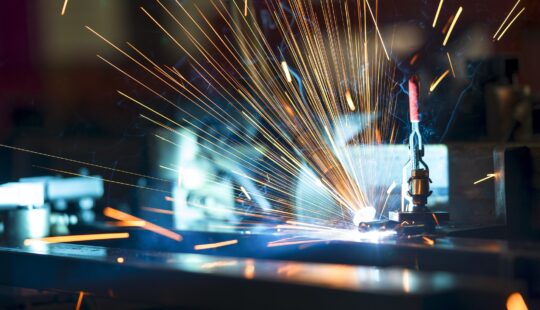Sparse modeling artificial intelligence (AI) is edging out traditional deep learning to become the technology of choice for product manufacturers and medical researchers because it ticks off all the boxes for modern quality control: explainability, energy efficiency, and speed. Just ask some of the customers from Hacarus, a Japan-based startup that’s developed a standout AI-fueled visual inspection solution.
“Sparse modeling AI is a surprising revelation for our clients that need to innovate faster while meeting high-quality standards, whether it’s electric vehicles, luxury watches, or drug discovery,” said Kenshin Fujiwara, CEO and founder of Hacarus. “They’re amazed at how we’re tackling traditional AI’s dirty secret, reducing the high energy costs of data collection and training, which saves time and our planet’s resources.”
A Green, Explainable AI Alternative
According to some studies, training a single AI model using traditional machine learning can equal the carbon emissions of five cars across their entire life cycles. That’s because machine learning algorithms attempt to “understand” every detail gleaned from huge amounts of data from scratch. In contrast, sparse modeling doesn’t require training from tens of thousands of images to yield a strong model for prediction. Because it starts with built-in assumptions, restrictions, and hypotheses, sparse modeling saves time by ignoring what’s already known. This reduces computational time and energy consumption.
On the factory floor, manufacturers need far fewer samples of both good and bad product parts to train the AI model, speeding up visual product inspections to detect defects and anomalies without sacrificing sustainability. Inside research labs, sparse modeling yields more explainable AI. For example, scientists exploring new drug treatments can more easily distinguish chemical compound reactions. In one pilot project with a pharmaceutical company in Japan, Hacarus’ solution performed 56 times faster than a deep learning algorithm.
“Sparse modeling is ideal for any precision engineering equipment or research company developing advanced products with less data,” said Fujiwara. “Electric vehicle parts are a great example because it’s a brand-new sector. Automakers and suppliers can create a reliable, AI-based model with as little as 20 images. It delivers the equivalent results of deep learning in a fraction of the time and energy.”
In addition to electric and combustion-fueled vehicle manufacturers, Hacarus’ customers in Japan and Europe span numerous industries, including luxury goods, chemicals, and life sciences. A global pharmaceutical company shortened drug discovery computational times by 99% while gaining insights into correlational changes, bringing crucial explainability into the field. One chemicals and life science products manufacturer combined Hacarus’ AI technology with sensors to speed up carboxymethyl cellulose sodium (CMC) quality inspections by 600%. CMC is an environmentally friendly plant-derived material used in many products such as lithium-ion batteries and high-grade fish feed. The company expected to reduce inspection labor and training costs by about 50% over the next two to three years.
Using AI for Sustainable Business Innovation
Hacarus is Fujiwara’s fourth startup, and the company’s history reflects the entrepreneur’s gold standard of fail fast until you make it with phenomenal success. The startup began as an Internet of Things (IoT)-based kitchen scale, followed by a fitness app – all the while focusing on small data analysis – before arriving at sparse modeling to help industrial and researchers achieve more with less.
“Hacarus means ‘to measure’ in Japanese, and I’ve always been focused on getting results from small data,” he said. “We realized that sparse modeling would help companies gain the benefits of AI where gathering large data sets was not possible or economical.”
SAP.iO Partnership for Shared Sustainable Vision
Fujiwara participated in the energy and natural resources cohort of SAP.iO Foundry Singapore, the company’s global B2B accelerator. Along with expert advice and introductions to SAP customers, he valued the opportunity to be integrated with SAP Asset Intelligence Network and made available on SAP Store.
“SAP is a global leader in our mutual priority industries, and it helped us understand what customers were looking for,” said Fujiwara. “Integrating inspection data from our sparse modeling AI capabilities with SAP solutions helps organizations continue digitalization for Industry 4.0. This reflects SAP’s vision for companies to become intelligent, sustainable, networked enterprises.”
While most of Hacarus’ customers are currently in Japan, international expansion plans are underway with projects in Europe and growing opportunities in North America. Widely used in academia – it was the technology used to create the first ever image of a black hole – sparse modeling is now lighting the way to more sustainable AI.



